Coronavirus Australia live news: Vaccine chaos as Queensland nurses turned away; Checks on AstraZeneca vaccine ‘link’ after Victorian clotting case
An error has led to dozens of nurses being sent away despite being told to report to a Brisbane hospital to receive their jab.
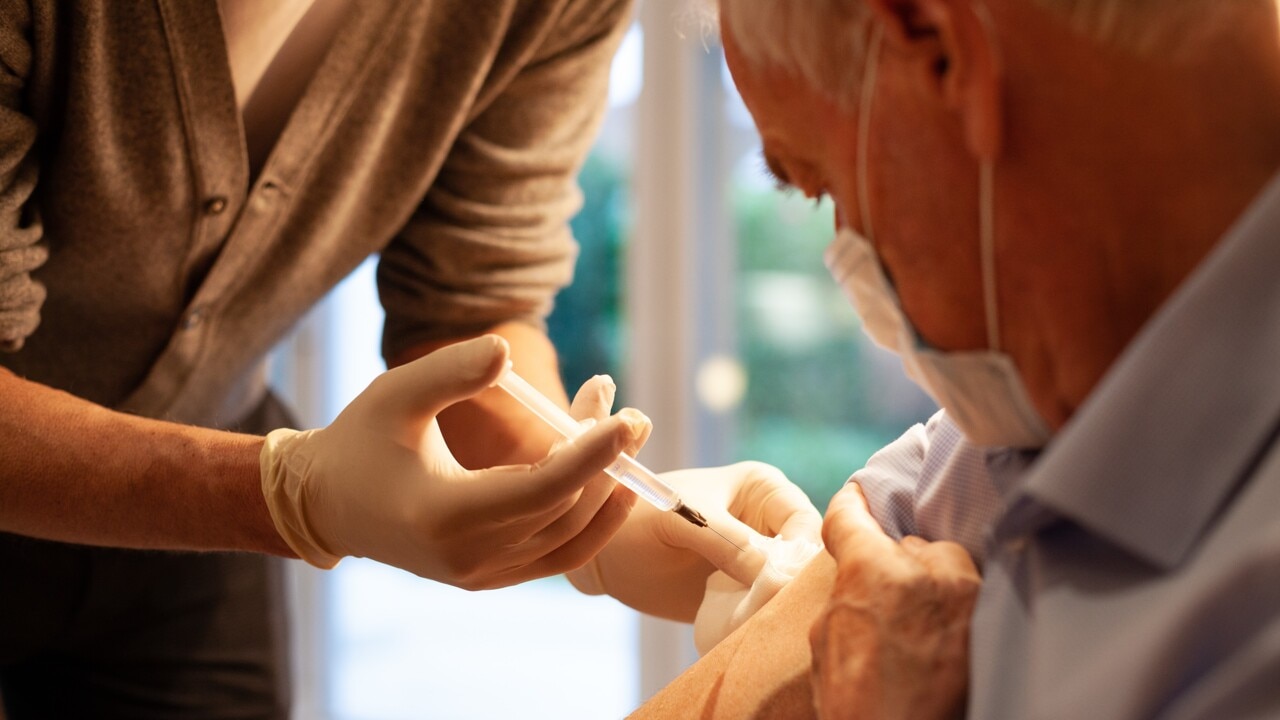
- Vaccine chaos: nurses turned away
- Inquiry after clotting case
- NSW goes day without new case
- Vaccine rollout row ignites again
- Qld identifies ‘missing’ contact in cluster
- NSW plan to return students
Welcome to The Australian’s rolling coverage of the ongoing coronavirus pandemic. Here is how the day unfolded.
An error has led to dozens of nurses being sent away despite being told to report to a Brisbane hospital to receive their COVID-19 vaccine. An expert team is investigating any link between the AstraZeneca virus and a Melbourne hospitalisation for blood clotting. A third nurse who a while ago contracted the virus is believed to be the ‘missing’ connection in a Brisbane hospital’s two chains of transmission and Queensland reports no other new cases of COVID-19 in the community, as does NSW. The federal government is looking to accept Gladys Berejiklian’s offer for NSW hospitals to help with the vaccine rollout.
Jacquelin Magnay8.00pm:Britain records 30 blood clot events after jab
Thirty British people have suffered rare blood clot events in the past four months after being given the AstraZeneca COVID-19 vaccine, prompting fresh guidance for doctors.
The UK’s Medicines and Healthcare products Regulatory Agency (MHRA) said in its latest review that 30 reports had been made to them involving rare and specific types of blood clots.
“Up to and including 24 March, we have received 22 reports of cerebral venous sinus thrombosis (CVST) and eight reports of other thrombosis events with low platelets, out of a total of 18.1 million doses of COVID-19 Vaccine AstraZeneca given by that date,” the MHRA said.
The agency added that there were no reports about blood clots associated with the Pfizer-BioNTech vaccine.
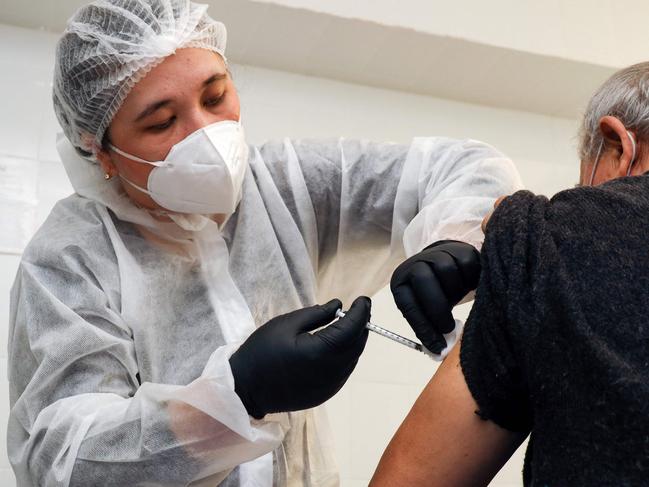
But it appears that the reporting of blood clotting has increased. On March 18, the MHRA had only received five reports of blood clotting, with the bulk of the 30 cases emerging after the AstraZeneca vaccine rollout was paused in 17 European countries pending further investigation.
The European regulators approved the AstraZeneca vaccine for use after their emergency review found it is “a safe and effective vaccine” but provided warnings about possible serious rare side effects to doctors and patients.
Despite the concerns, the MHRA said: “the benefits of the vaccines against COVID-19 continue to outweigh any risks and you should continue to get your vaccine when invited to do so.’’
The agency said MHRA scientists and clinicians, as well as the Commission on Human Medicines had reviewed each blood clotting report as part of an ongoing review.
“The risk of having this specific type of blood clot is very small,” it said.
“The expected benefits of both COVID-19 vaccines in preventing COVID-19 and its serious complications far outweigh any known side effects.”
In the UK the high vaccination rate is hailed as a huge success and is attributed to the lowering of the death rate and the slow steps in re-opening the economy.
On Thursday there were 4478 new infections – well down on the 60,000 a day reported in January, and deaths were 51, down from a daily high of 610, also in January.
But the apparent blood clot issues with the AstraZeneca vaccine have seen some European countries limit its use. Germany has recommended AstraZeneca only for those aged over 60.
The British Society for Haematology has issued guidance on the treatment of thrombosis and thrombocytopenia after vaccination with COVID-19 vaccines. It recommends urgent treatment with intravenous immunoglobulin and to avoid platelet transfusions and all forms of heparin (blood thinners).
READ MORE:Melbourne man hospitalised after AstraZeneca jab
James Hall7.30pm:Vaccine chaos on the Queensland frontline
A communication failure has led to dozens of nurses being turned away from a major Brisbane hospital on Friday after being called in to get their coronavirus vaccine.
A nurse from a public hospital in the Sunshine State’s capital was told in an email that included detailed information to arrive for an appointment on April 2 at the Royal Brisbane and Women’s Hospital (RBWH).
The email, seen by NCA NewsWire and sent from ‘Queensland Health Vaccine Bookings’, provided the nurse with a QR code to identify themselves and instructed them to proceed to a specific location within the hospital.
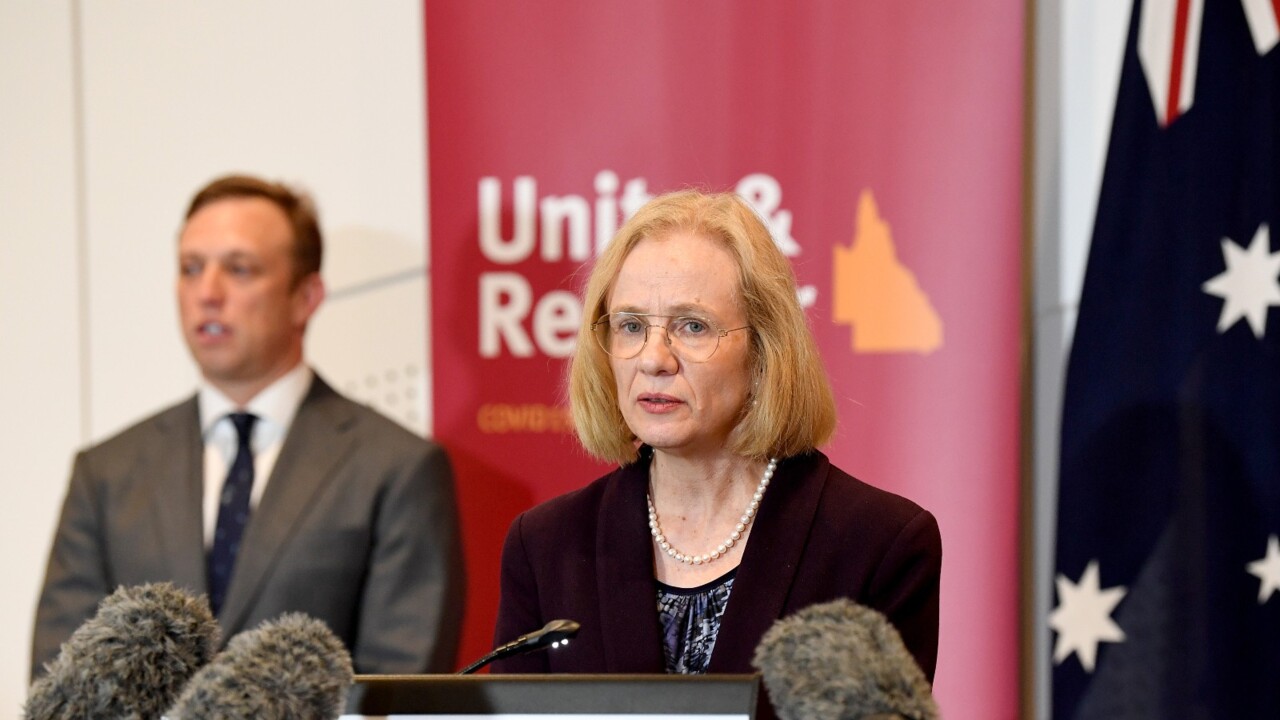
The nurse, who requested to remain anonymous, said the confirmation email arrived immediately after Queensland Health told staff in another email to register to get their jab.
But when the nurse and more than a dozen other health professionals queued up at the RBWH at their allotted time on Friday, a nurse manager told them the vaccine clinic was closed and there were no staff on duty to administer the vital jab.
NCA NewsWire has been alerted to similar communication failures from Thursday within the department which has delayed the vaccination of health professionals in the state’s hospitals.
Courier-Mail5.50pm:More gyms added to alert list in SE Qld
Visitors to two Sunshine Coast gyms have been ordered to quarantine at home for 14 days as Queensland Health updated its contact tracing list with 23 new incidents, the Courier-Mail reports.
The updated list includes several gyms, with Plus Fitness Minyama and KCF training Birtinya venues deemed “close contacts”.
The venue list includes locations across Brisbane, the Gold Coast, in Central Queensland, Toowoomba, Ballina and Byron Bay.
New Sunshine Coast venues deemed ‘close contacts’ and times:
Monday 22 March (between 9.15am – 11.30am) – KCF Training (gym) Birtinya.
Monday 22 March (between 2.30pm – 3.30pm) – Plus Fitness Minyama.
Tuesday 23 March (between 7.30am – 8.30am) – Plus Fitness Minyama.
FULL REPORT is here.
Angelica Snowden4.10pm:National CMO says inquiry under way on AZ clot ‘link’
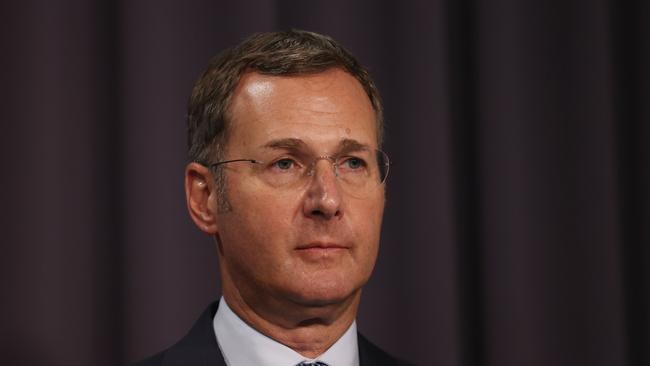
Acting chief medical officer Michael Kidd says a link between a rare blood clotting condition and the AstraZeneca COVID vaccine is unclear, but an urgent meeting will take place on Saturday morning to investigate.
“One case of this clotting disorder has been recorded in Australia over night and we are taking this very seriously,” Professor Kidd said on Friday afternoon.
“It is currently being investigated by the Therapeutic Goods Administration and a meeting will be held tomorrow of the TGA vaccine safety investigation group which will examine this report and determine whether it could be linked to the AstraZeneca vaccine,” he said.
“At this time, the risk of serious disease and death from COVID-19, if we experience another severe outbreak – especially among older Australians and those with severe health conditions — is far greater than the very small potential risk of a very rare clotting disorder associated with the vaccine,” he said.
Professor Kidd said the TGA had been monitoring reports from overseas — in particular the UK — of clotting disorders which seem to occur between four and 20 days after vaccination.
“The European Medicines Agency and the UK Medicines and Healthcare Products Regulatory Agency are investigating these reports,” he said.
“Investigators have not at this time confirmed a causal link with the COVID-19 AstraZeneca vaccine but investigations are ongoing.”
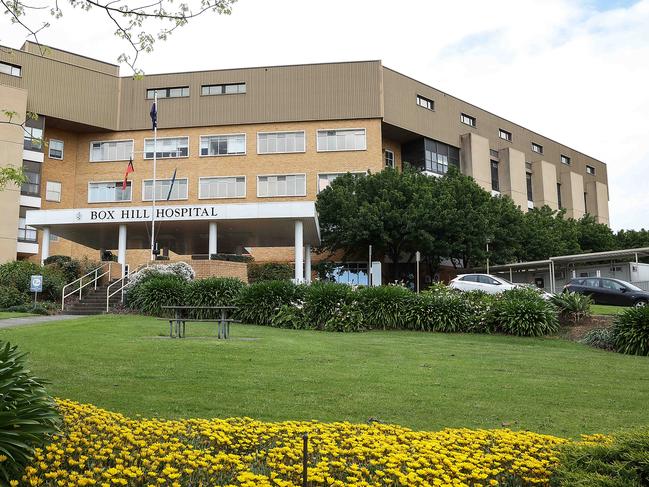
He said authorities were taking “very seriously” the case of a 44-year-old man who was taken to Box Hill Hospital in Melbourne with blood clotting after he received the AstraZeneca vaccine.
“The AHPPC [Australian Health Protection Principal Committee] has today asked for further urgent advice from ATAGI [Australian Technical Advisory Group on Immunisation] and from the TGA on the case which has been reported this morning,” he said.
“The AHPPC will be meeting again tomorrow to consider this further advice on the AstraZeneca vaccine.
“I remind anyone receiving a vaccination over the coming few days that these instances of serious clotting disorders are extremely rare and have occurred in only a very small number of cases.”
Professor Kidd said the clotting condition — dubbed by German scientists as vaccine-induced prothrombotic immune thrombocytopenia — has presented as either a clot in the brain or as thrombosis “in other sites”.
“The TGA has received only one report of a case of thrombosis and thrombocytopenia following vaccination with the AstraZeneca vaccine in Australia but the causal link has not yet been established,” he said.
“We are taking this potential risk very seriously. This is why the AHPPC has asked [the Australian Technical Advisory Group on Immunisation] to meet later today to provide additional advice.”
He said he expected further information to be provided tomorrow [Saturday].
As of midday yesterday, more than 750,000 doses of COVID-19 vaccines had been administered across the country.
This includes more than 425,000 doses of the Astra Zeneca vaccine. There are 133,000 people aged under 55 who received this vaccine.
Professor Kidd also said the commonwealth had removed Brisbane’s “hot spot” definition after more than 75,000 people across the country received a COVID-19 test yesterday.
READ EARLIER: UK infections among Europe’s lowest now
NCA NewsWire2pm:Alleged quarantine jumper is taken back to hospital
Police have been called in to track down a patient who left Brisbane’s Princess Alexandra Hospital after being identified as a close contact of a COVID case, the Courier-Mail reports.
Queensland Police Deputy Commissioner Steve Gollschewski confirmed the incident during a press conference on Friday morning.
“[Queensland] Health had identified a person had left the Princess Alexandra Hospital, we tracked that person down yesterday at [suburban] New Farm,” he said.
“She’s been returned under quarantine direction to the PA hospital.”
chief health officer Dr Jeannette Young said the quarantine jumper was tested on March 30 and returned a negative result. Mr Gollschewski said there had been no enforcement action taken in relation to COVID operations in the last 24 hours.
FULL REPORT is here
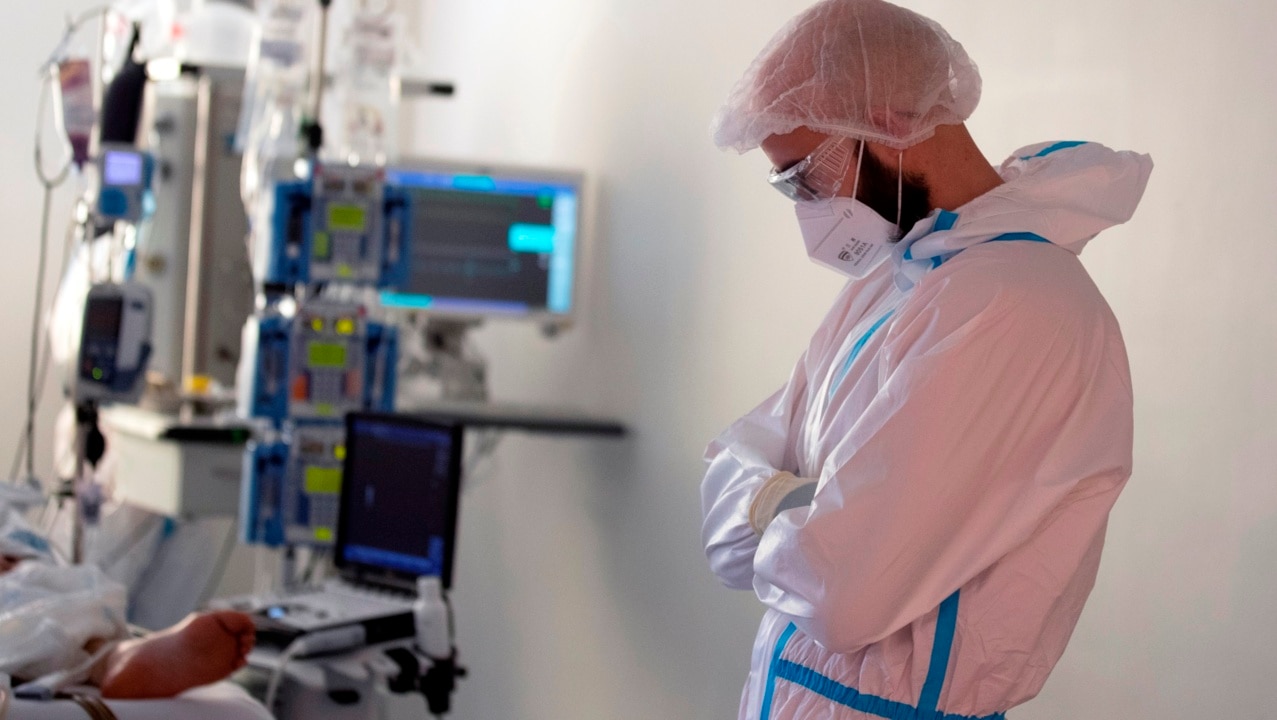
Agencies1.45pm:China vaccine maker doubles production capacity
Chinese biopharmaceutical firm Sinovac says a third production line for its COVID-19 vaccine has been put into use, doubling its annual capacity of the jabs to two billion doses.
Its CoronaVac is one of four domestic vaccines given conditional approval by Chinese authorities, which helps rush emergency drugs to market.
On Wednesday, experts from the World Health Organisation said an interim analysis of clinical trial data from two Chinese vaccines, including Sinovac’s product, showed they demonstrated “safety and good efficacy”, although more data is still needed.
“Over 200 million doses of CoronaVac have been delivered to over 20 countries, including China,” Sinovac says.
Although Sinovac’s jab has been approved by domestic regulators, it has yet to receive authorisation by what the WHO considers “a stringent regulatory authority”, the UN health agency’s Strategic Advisory Group of Experts on Immunisation (SAGE) says.
AFP
ALSO READ: Man in Melbourne hospital after AZ vaccination
Agencies1pm:Crackdown on open-air crowds in Europe
Police on horseback and using water cannon have charged a crowd of up to 2000 people gathered in a Brussels park for a fake concert announced on social media as an April Fool’s Day prank.
AFP journalists at the scene saw projectiles thrown at police in riot gear in the Bois de Cambre park on the southern side of the Belgian capital.
Police said that three officers were wounded, one of whom was taken to hospital, and four people were arrested.
The police, wearing protective helmets and advancing in a line, moved in to enforce strict COVID-19 social-distancing rules that prohibit gatherings of more than four people outdoors.
Brussels law enforcement authorities on Wednesday had issued a warning that the announcement on social media of a “party” was illegal and that its organisers could be prosecuted.
Belgium on Saturday imposed tighter restrictions aimed at curbing surging COVID infection numbers. They include closing schools, keeping borders closed, limiting access to non-essential shops and lowering the number of people able to meet outdoors to four.
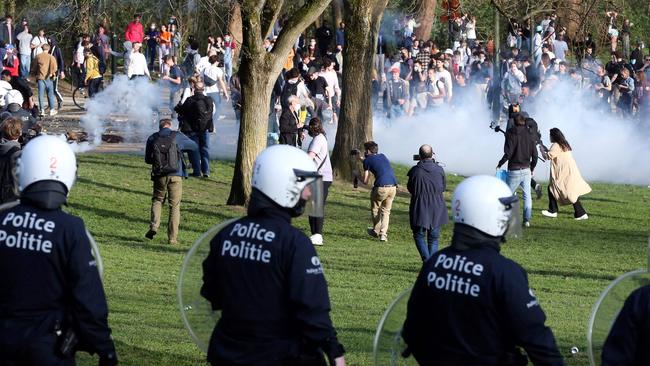
In France, Prime Minister Jean Castex said alcoholic drinks would be prohibited in French parks and other outdoor public spaces as part of the new limited nationwide lockdown to stem the COVID crisis.
Addressing the National Assembly, Mr Castex also said authorities would be quick to disperse groups of more than six people on riverbanks or squares after the new restrictions unveiled by President Emmanuel Macron late Wednesday.
Mr Castex said he “unreservedly” condemned people who had not been respecting the rules, after images emerged of beer-swigging crowds on riverbanks in the spring sunshine in cities including Paris and Lyon.
By decreeing school closures and systematic work-from-home protocols, Mr Macron hopes to ease pressure on hospitals facing a new surge in coronavirus cases that are overwhelming intensive-care units.
But he refrained from demanding that people stay in their homes or avoid socialising completely.
AFP
ALSO READ: GPs do lion’s share of jabbing
Angelica Snowden12.30pm:‘All’ Vic hotel quarantine staff to be vaccinated
Victoria’s Health Minister Martin Foley says “all” staff working in hotel quarantine will be vaccinated against COVID-19 when the state’s program accepts international arrivals again from April 8.
“All of the staff working in hotel quarantine Victoria working in our hotels will be vaccinated,” Mr Foley said.
“We are well over 95 per cent already,” he said.
The quarantine program was suspended on February 14 after an outbreak linked with a Holiday Inn hotel sent the state into a five-day snap lockdown.
Staff with underlying health conditions and those who were on leave are the remaining hotel quarantine workers who are yet to receive the jab, Mr Foley said.
Yesterday there were no new cases reported. 15,829 results were received. Thanks for getting tested - #EveryTestHelps.
— VicGovDH (@VicGovDH) April 1, 2021
More later: https://t.co/lIUrl0ZEco #COVID19Vic #COVID19VicData pic.twitter.com/gybKzAj4ua
The promise came after the minister said there would be some COVID vaccine waste, following reports about three in 1000 Pfizer vaccines have been thrown out.
“There is always a minimal allowance for potential wastage or sometimes as a result of cold chain storage breakages,” he said.
“Unexpected detection” of viral fragments in sewage — reported by the department on health on Thursday – also prompted Victoria’s health authorities to call on anyone with COVID symptoms in Melbourne’s western suburbs to be tested.
Suburbs identified include Altona, Hoppers Crossing, Laverton and Point Cook.
ALSO READ: Hospital appeal keeps on giving
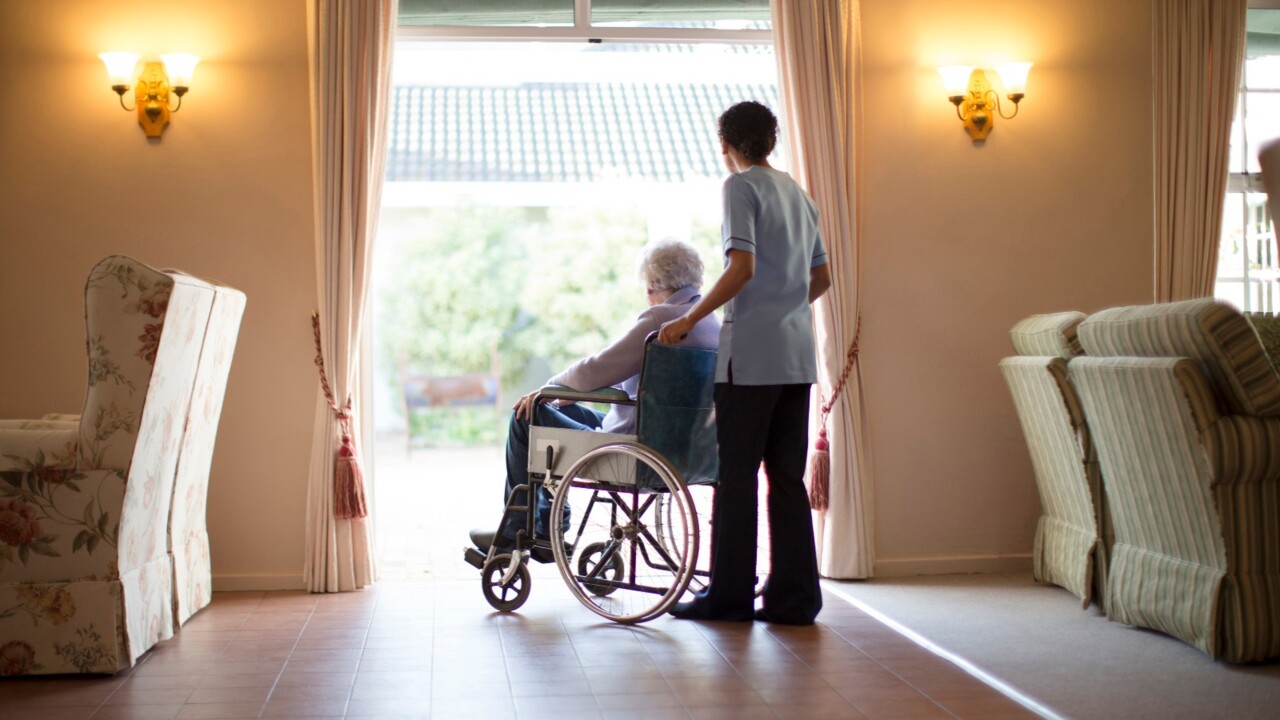
Adeshola Ore11.45am:Labor seizes on missed inoculation target
Federal opposition health spokesman Mark Butler has accused Scott Morrison of “making a mess” of the nation’s vaccine rollout, as Labor seizes on the government’s missed inoculation target for the aged-care sector.
A fresh vaccine rollout stoush between the states and the federal government emerged this week.
As Queensland battles its latest outbreak, Deputy Premier Steven Miles has threatened the state would run out of Pfizer vaccines this weekend, causing GPs to be up in arms about the insecurity of the vaccine supply which is a responsibility of the federal government.
NSW Premier Gladys Berejiklian also took a stab at the Morrison government alongside Health Minister Brad Hazzard, who called the vaccine rollout the hardest issue he had faced in the war against COVID-19.
“We also know that Scott Morrison promised to complete the vaccination of the aged- care sector, the most vulnerable population, by today. Instead we’ve learnt that only about one third of aged-care facilities have received even the first dose of vaccines,” Mr Butler said.
“Scott Morrison said Australia was at the front of the queue in our vaccine rollout strategy. But we know that’s simply not the case.”
READ EARLIER: Federal minister says he ‘won’t be lectured’
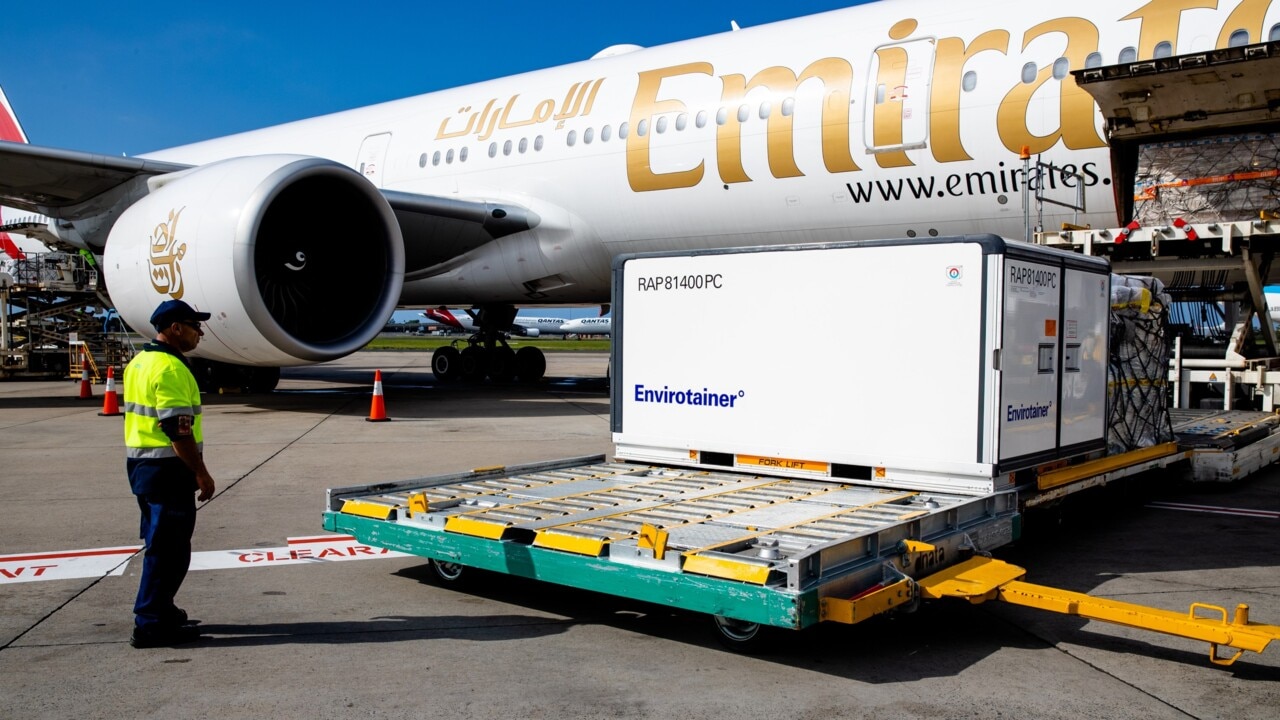
The Times11.35am:UK infections among Europe’s lowest, ‘long Covid’ a worry
Coronavirus infections in Britain are lower than in all the main EU nations as the number of second vaccine doses administered reached a record high.
But an estimated 1.1 million people in the UK are suffering “long COVID’’ symptoms including fatigue, muscle aches, blurred vision and tremors, according to the Office for National Statistics.
The first official estimate suggests about one in 60 people in Britain are living with the condition. Of those, some 674,000 said that it was adversely affecting their day-to-day activities. Another 196,000 reported that their ability had been limited a lot.
The UK has lower daily infection rates than 26 of the 27 EU member-states, despite being the worst hit in January.
Seventy-nine cases per million people were recorded on Wednesday. Only Portugal, which recorded 41, had fewer. Hungary, the worst-affected nation in the bloc, has a daily rate of 868 cases per million.
The weekly infection rate in France is about eight times higher than in the UK as a sharp rise in cases pushes intensive care units to breaking point. President Emmanuel Macron has blamed the “British variant” for the surge and announced a third national lockdown, which is due to start at midnight Friday local time. tonight (Friday).
A record 1,308,829 people in Britain received their second dose of the vaccine in the week ending March 28, bringing the number of people to have had both shots to 2,913,596. Overall 28,828,879 doses of the vaccine have been administered. Supplies are expected to dip this month and the NHS has been told to focus on the over-50s and delivering second doses.
READ EARLIER:WHO lashes slow EU vaccine rollout
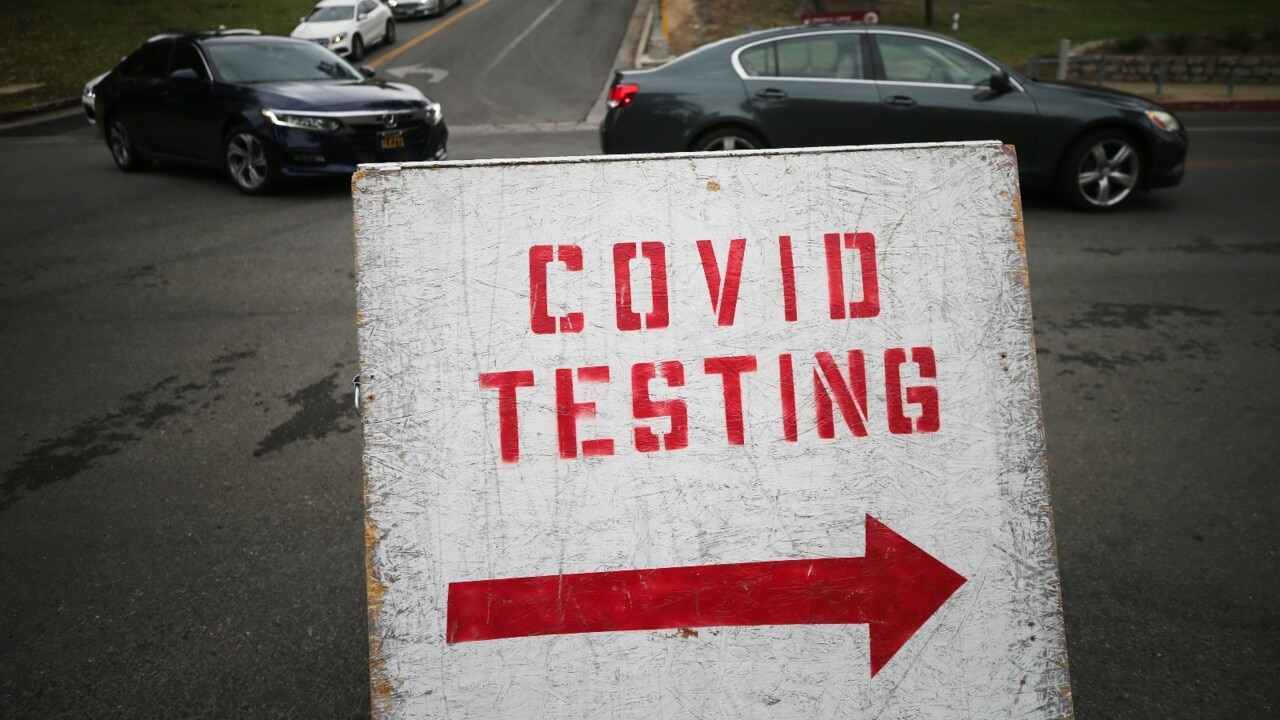
Rhiannon Down11.28am: NSW says it has passed a day without new cases
NSW has recorded zero locally acquired cases of COVID-19 or in returned overseas travellers in the past 24 hours.
It comes as Byron, Tweed, Ballina and Lismore shires enter their third day of heightened restrictions, after a local case was detected in a Byron Bay man on Wednesday.
“There were 20,061 tests reported to 8pm last night, compared with the previous day’s total of 20,459,” NSW Health said on Friday.
“NSW Health thanks the community, particularly those in northern NSW, for coming forward in large numbers for testing, as this is critical to detect and stop transmission of the virus.”
The NSW north coast remains on high alert with several exposure windows at hotspot venues being amended by health authorities.
NSW Health also asks anyone who attended the following venues have been asked to get tested and isolate:
Byron Bay Park Hotel/Motel pub/restaurant, Suffolk Park, Sunday March 28 from 1.45pm to 2.10pm.
Suffolk Park Bakery, Suffolk Park, Saturday March 27 from 12.45pm to 1.15pm and 2.45pm to 3.15pm as well as on Sunday March 28 from 10.30pm to 11.45pm.
NSW recorded no new locally acquired cases and no new overseas-acquired cases of COVID-19 in the 24 hours to 8pm last night, keeping the total number of cases in NSW since the beginning of the pandemic at 5,107. pic.twitter.com/mnrmTiFr5N
— NSW Health (@NSWHealth) April 2, 2021
NSW’s vaccination total has edged higher, with almost 30,000 people receiving their second jab.
Some 2869 people received their final jab on Thursday, while 4087 received their first in the same period.
Almost 95,000 people have received their first dose in total as the roll out picks up.
The numbers bring the state’s total vaccinations to 124,345 doses.
READ EARLIER: NSW plan for international students return
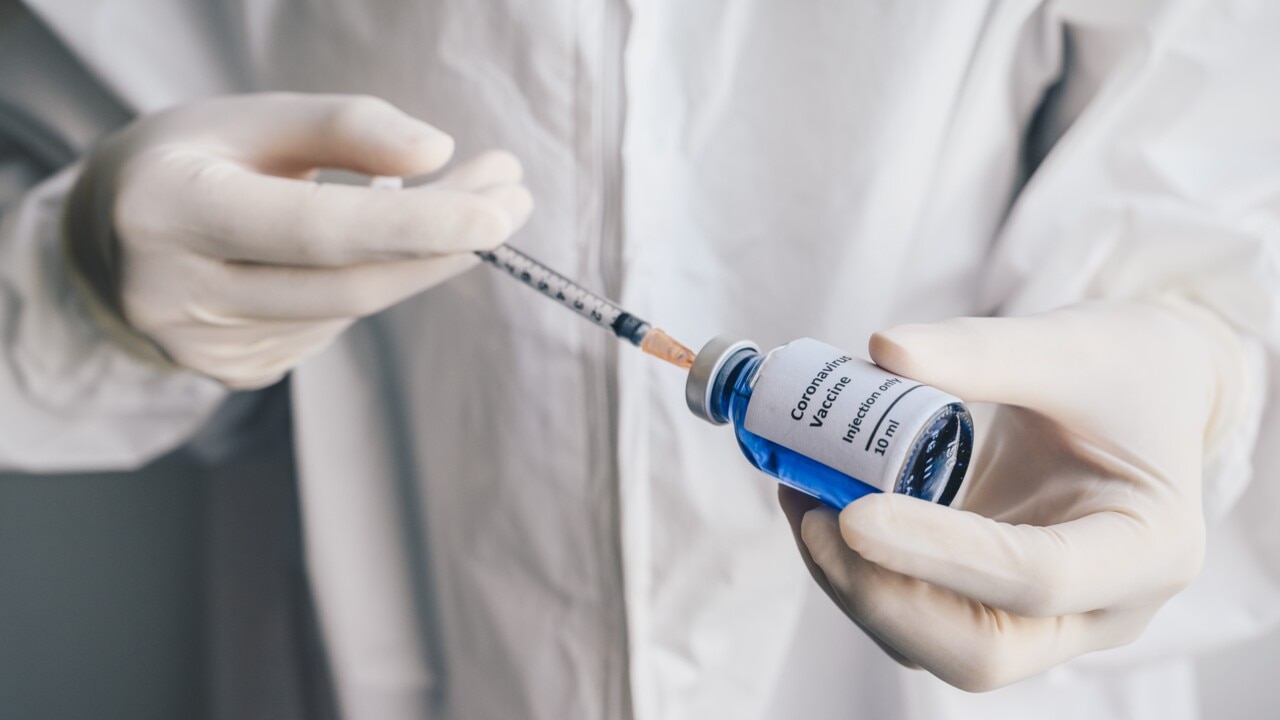
Mackenzie Scott 10.30am:Palaszczuk says more data needed on rollout
Transparency was the key to the vaccine rollout, said Queensland Premier Annastacia Palaszczuk.
Talking at a press conference this morning, Ms Palaszczuk echoed the sentiment of NSW Premier Gladys Berejiklian and other state leaders who have criticised the federal government’s handling of the COVID-19 vaccine program.
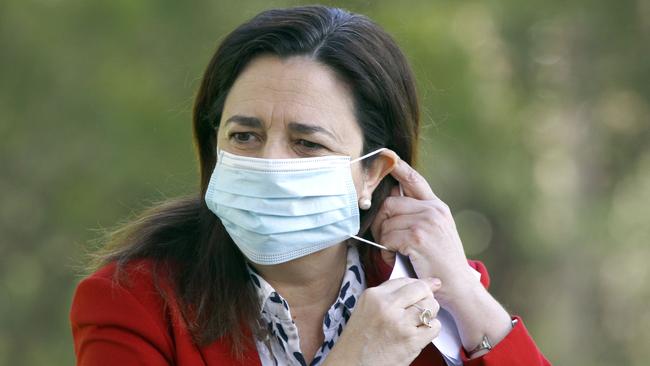
“We should have a rolling list of when the deliveries are coming,” Ms Palaszczuk said.
“That would help everyone.’’
READ EARLIER: NSW hospitals set to help with rollout
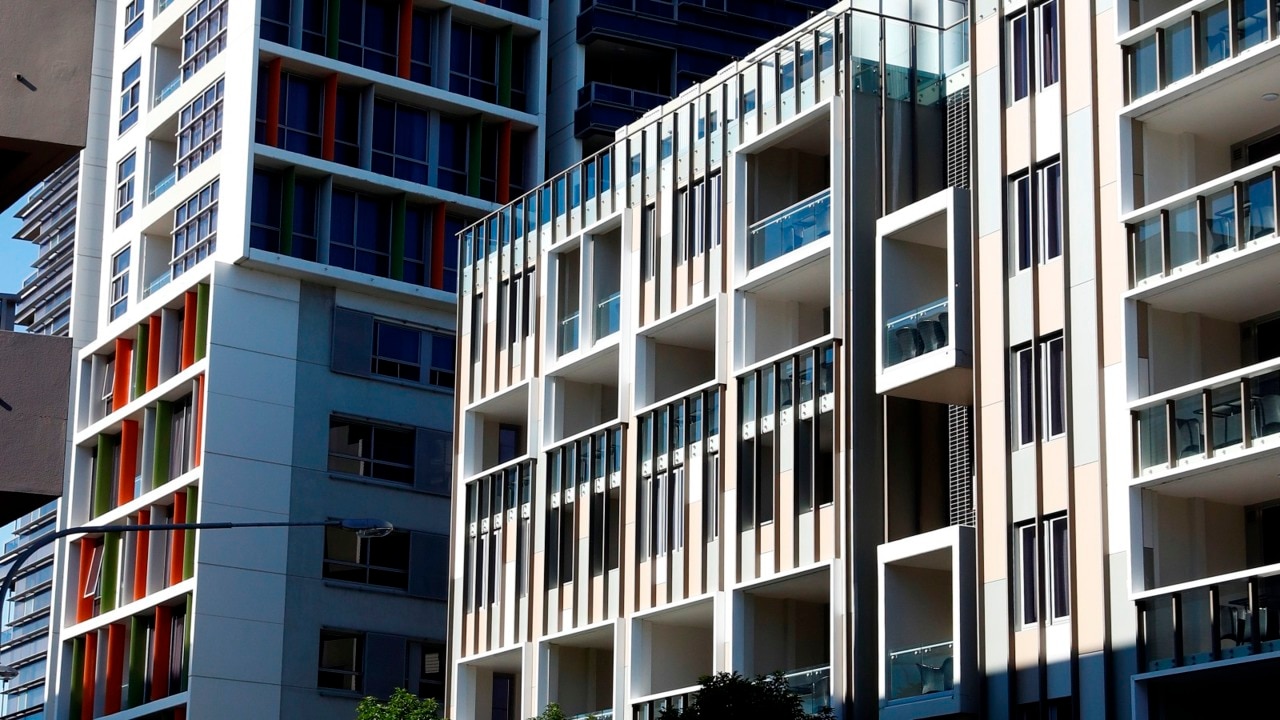
Rhiannon Down10.25am: Pfizer jab ‘91pc effective’ against South African strain
Pfizer Inc and BioNTech say Pfizer’s COVID-19 vaccine is about 91 per cent effective and highly efficient in protecting against the South African variant.
New data shows the vaccine offered 91.3 per cent protection in a sample of 927 confirmed symptomatic cases, up to six months after the second dose.
It was also 100 per cent effective in preventing severe disease, as defined by the US Centres for Disease Control and Prevention.
It also showed 100 per cent efficacy in preventing COVID-19 cases in South Africa, where the B. 1.351 strain is prevalent.
“These data confirm the favourable efficacy and safety profile of our vaccine and position us to submit a Biologics Licence Application to the US FDA,” Pfizer chairman and chief executive Albert Bourla said.
“The high vaccine efficacy observed through up to six months following a second dose and against the variant prevalent in South Africa provides further confidence in our vaccine’s overall effectiveness.”
ALSO READ: Should we try homegrown vaccines?
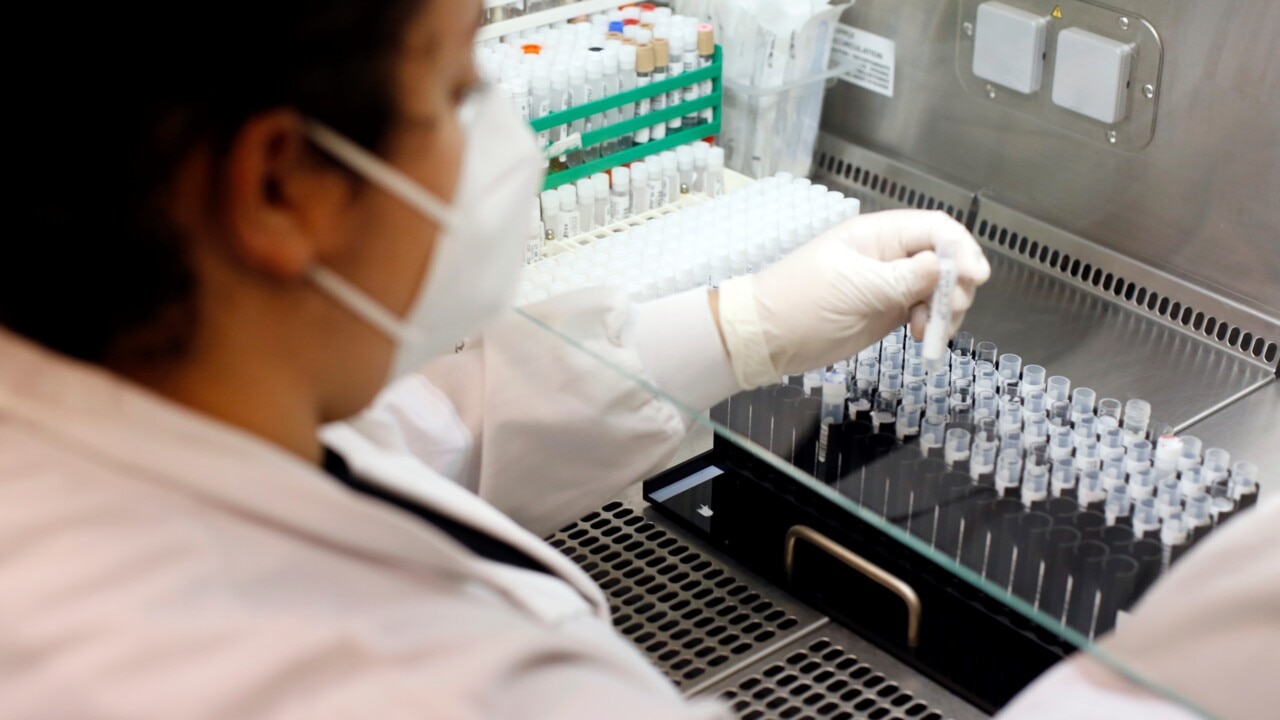
Mackenzie Scott 10.20am:Another case believed linked to Brisbane hospital
Another nurse from Brisbane’s Princess Alexandra hospital — the third, in addition to a doctor — has been diagnosed with COVID-19 in a double-cluster originating from the hospital.
The woman, who was asymptomatic and has since recovered, is believed to have contracted the virus from a superspreader returned traveller while on shift on March 9. Now an historical case, she is believed to have been an infected contact in one of two clusters linked to the hospital, along with another nurse.
Both clusters originated from a returned traveller. The other cluster involved a third nurse and a doctor at the hospital and became linked to a 26-year-old landscaper from Stafford, on Brisbane’s northside, who was diagnosed a week ago.
The latest known nurse’s partner also contracted the virus, with the couple spreading it through a friendship circle.
Queensland chief health officer Jeannette Young said it would be impossible to confirm the cases were linked but she was confident the nurse was the relevant cluster’s missing link. (See item below.)
“She treated the same patient [as the other nurse in that cluster],” Dr Young said.
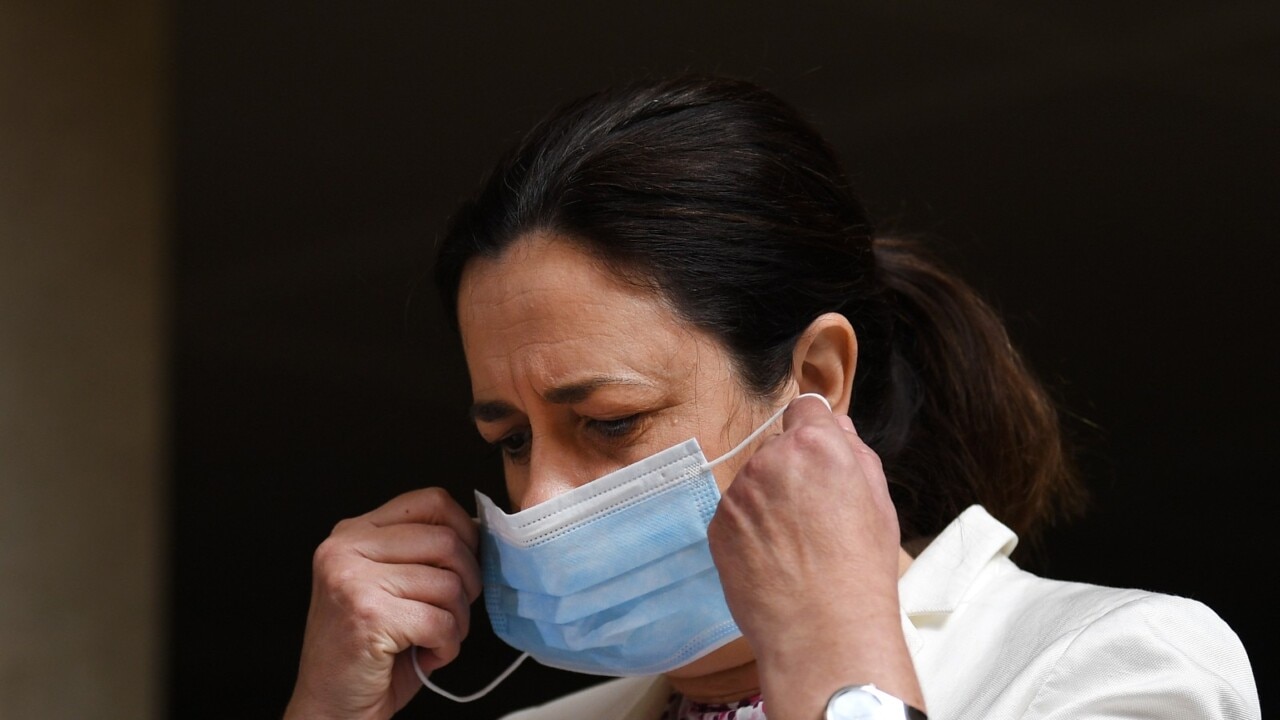
Since Brisbane’s lockdown was announced on Monday (lifted with continuing restrictions yesterday), more than 100,000 tests have been conducted. Dr Young said she believed Brisbane’s risk of transmission had greatly decreased.
“Given the number of tests we have done, we have probably picked up the cases,” she said.
As well as the historical case of the nurse, Queensland has recorded seven new cases acquired overseas and detected in hotel quarantine.
Dr Young said everyone involved in the two clusters that had led to the lockdown in Greater Brisbane had done “everything wonderfully”, the Courier-Mail reports.
“It’s been an enormously successful process in terms of people coming forward,” she said.
Dr Young said the historical case was a nurse who had contracted the virus from a man who is a “superspreader”.
The department released a list of 10 locations visited by the nurse who was identified overnight as having an historical case of COVID-19 which the state’s chief health officer believes is linked to Brisbane’s northside cluster.
People who have visited the locations have been instructed to get tested if unwell and have been urged to see their GP to arrange for a COVID-19 serology test. While the test will not genomically link then, it will be a lead indicator of any link.
Wednesday 10 March – Plus Fitness, Everton Park 1.15pm to 2.15pm
Wednesday 10 March – Woolworths, Everton Park 2.30pm to 2.40pm
Thursday 11 March – Plus Fitness, Everton Park 3.30pm to 5.00pm
Friday 12 March – Plus Fitness, Everton Park 3.30pm to 5.00pm
Saturday 13 March – Woolworths and Specsavers, Brookside Shopping Centre, Mitchelton 4.00pm to 5.00pm
Sunday 14 March – Plus Fitness, Everton Park 8.30am to 10.00am
Monday 15 March – Plus Fitness, Everton Park 9.00am to 10.30am
Tuesday 16 March – Plus Fitness, Everton Park 4.30pm to 5.30pm
Wednesday 17 March – Woolworths, Everton Park 2.30pm to 3.00pm
Wednesday 17 March – Studio Pilates, Grange to 4.30pm 5.15pm
Also other casual contacts sites and times – get tested immediately and quarantine until you get a negative result
Thursday 18 March – Plus Fitness, Everton Park 8.00am to 9.30am
Thursday 18 March – Giant Chemist, Pacfic Fair Shopping Centre, Broadbeach 1.45pm to 2pm
Thursday 18 March – Studio Pilates, Grange 4.30pm to 5.15pm
Friday 19 March – Plus Fitness, Everton Park 7.30am to 9am
Friday 19 March – Studio Pilates, Grange 12.15pm to 1pm
Friday 19 March – Chemist Warehouse, Windsor 2pm to 2.20pm
Tuesday 23 March – Nutrition Warehouse, Maroochydore 11.15am to 11.30am
Tuesday 23 March – Brightwater Medical Centre at Brightwater Shopping Centre, Mountain Creek 12pm to 12.45pm
Tuesday 23 March – QML Pathology at Brightwater Shopping Centre, Mountain Creek 1pm to 1.15pm
Mackenzie Scott 10.05am:Queensland finds ‘missing link’ in transmission chain
The missing link in Brisbane’s chain of transmission is believed to have been found as Queensland reports no new cases of COVID-19 in the community.
No community transmission overnight. One historic locally acquired case recorded in Queensland. Seven overseas acquired cases recorded, all detected in hotel quarantine.
— Annastacia Palaszczuk (@AnnastaciaMP) April 1, 2021
Premier Annastacia Palaszczuk said the result was a good result as the state entered the Easter long weekend.
One historical case of COVID-19 was found in the community overnight.
READ MORE: Arrivals free after 36 hours of chaos
Erin Lyons9.45am: NSW hospitals set to help with vaccine rollout
NSW hospitals could soon be called in to help with the vaccine rollout following days of fiery exchanges between state leaders and the federal government.
Each blamed each other for failing to reach their vaccine target.
About 750,000 jabs have been administered nationwide, well short of the four million target which was expected to be achieved by the end of March.
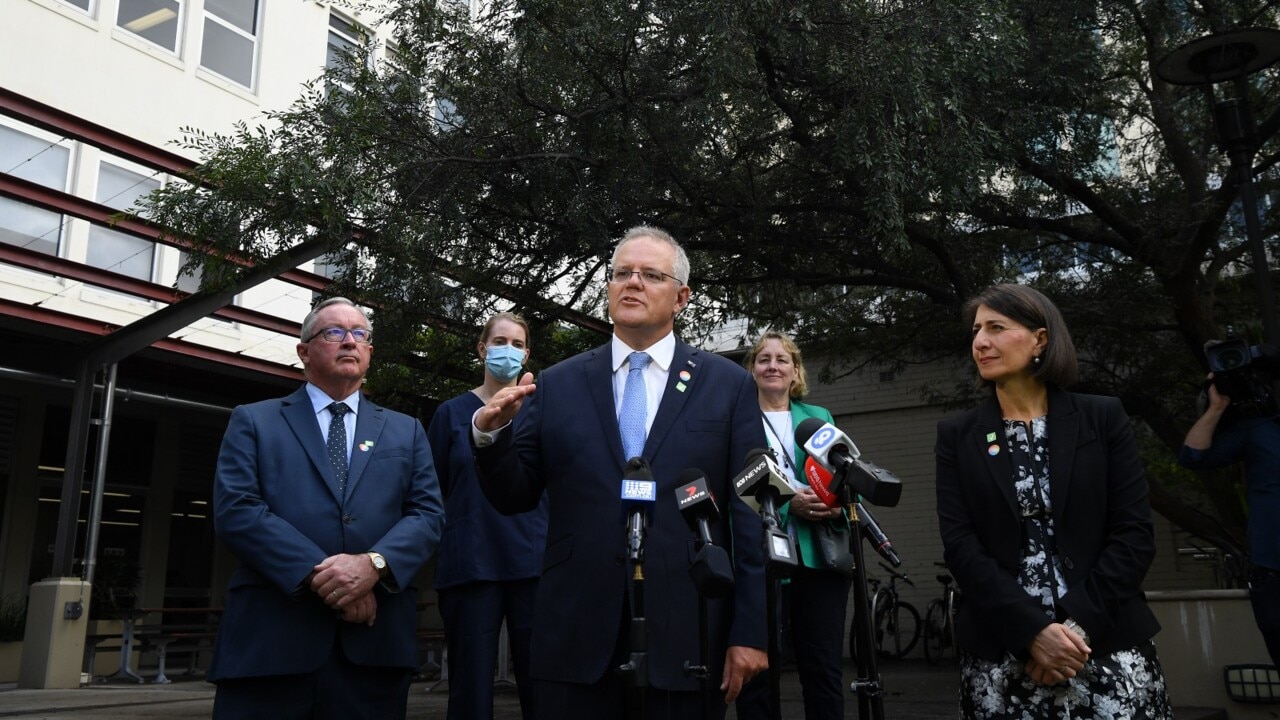
This means 200,000 people need to roll up their sleeves every day to reach the goal of all Australian adults getting their first dose of the jab by the end of October.
State leaders argue they’re being left in the dark about how many doses they’re getting and have slammed the federal government for accusing them of stockpiling vaccines.
On Thursday NSW Premier Gladys Berejiklian echoed her ongoing plea, urging the Morrison government to allow the state’s hospitals to help with the rollout if they fall under the federal government’s jurisdiction.
NCA NewsWire understands Ms Berejiklian’s calls have been answered with the federal government looking to accept her offer.
The government plans to use these facilities as mass vaccination clinics, as mentioned by professor Brendan Murphy at Senate estimates when he noted mass vaccination clinics will be established across Australia.
Victoria has been given a head start with plans underway for four vaccination centres while other mass centres will be established in other states as the rollout program gathers pace.
READ MORE:Why aren’t we giving homegrown vaccines a shot?
Paul Viera9.15am: Canada provinces impose strict restrictions as cases rise
The rise of COVID-19 variants is forcing Canada’s three biggest provinces to impose some of the sternest economic and social restrictions in over a year, with authorities alarmed by a rapid increase in cases involving younger people.
Ontario authorised new province wide restrictions for a four-week period beginning Saturday that will ban indoor activities such as dining at restaurants, working out at gyms and styling hair. The rules also limit outdoor gatherings to five people.
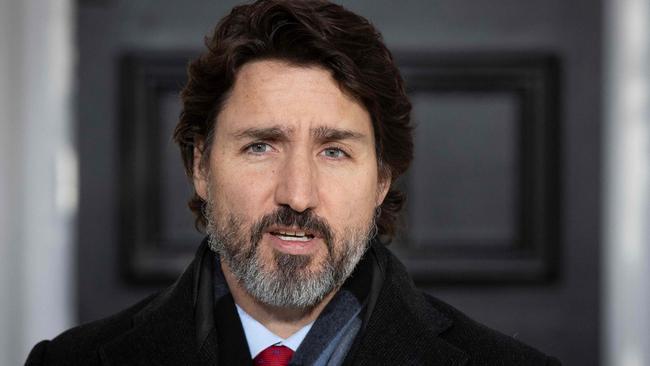
Earlier in the week, Quebec moved three regions into restrictions that ordered the closing of schools and non-essential businesses, and British Columbia banned indoor dining, group fitness and worship services across the west-coast province for three weeks. Those three provinces account for three-quarters of Canada’s population.
“As the new variants spread, you will see that COVID-19 is killing faster and younger,” Adalsteinn Brown, a senior science adviser to the Ontario government, said in a briefing Thursday before the province issued its fresh restrictions. “We cannot vaccinate quickly enough to break this third wave. This is the challenge of the new variants.”
While the pace of vaccinations has accelerated in Canada, the country’s inoculation rate, on an adjusted basis, continues to lag the UK and US, and trail major European economies. Officials say vaccine deliveries will ramp up in the second quarter, and Prime Minister Justin Trudeau said this week it was possible every Canadian will get at least one shot of a COVID-19 vaccine before the start of summer.
Canada’s seven-day average of confirmed COVID-19 cases, as of Thursday, climbed roughly 40 per cent from a week ago and sits at a two-month high, according to Johns Hopkins University data. Over the past seven days, Ontario has accounted for nearly half of the country’s new COVID-19 cases and over half of COVID-19 deaths, Canadian government data indicate.
Dr. Brown said data in Ontario indicate hospitalisations have climbed by roughly 42% over a two-week period. Meanwhile, he said the share of Ontarians under the age of 60 being admitted to intensive care due to COVID-19 has expanded, which highlights the risks posed by the new variants.
Nearly all of the COVID-19 cases tied to variants of concern are from the variant known as B117, which was the dominant strain of the new coronavirus in southeastern England in December.
WSJ
READ MORE:Arrivals free after 36 hours of chaos
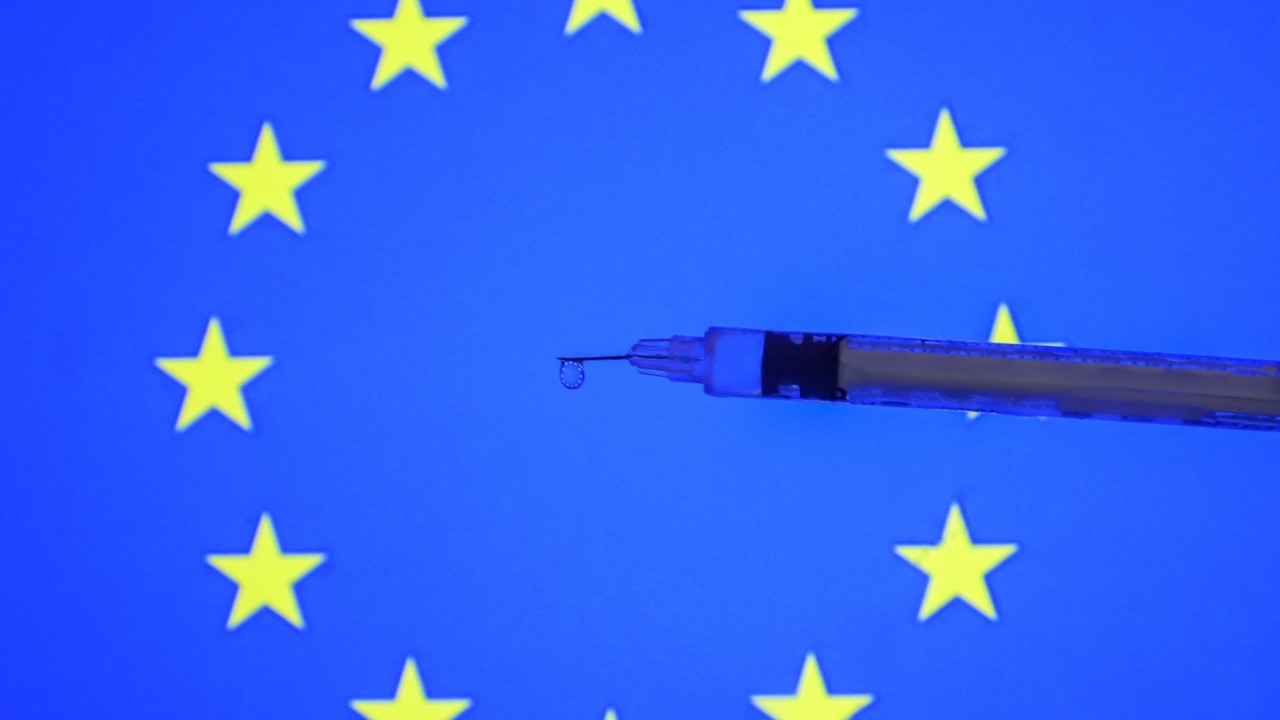
Erin Lyons8.45am: Virus alert for wastewater in Melbourne suburbs
Fragments of COVID-19 have been detected in the wastewater across several Melbourne suburbs with residents urged to get tested, even if they show the mildest signs of illness.
Victoria’s health department sent out an updated alert on Thursday night which outlined nine new suburbs of concern.
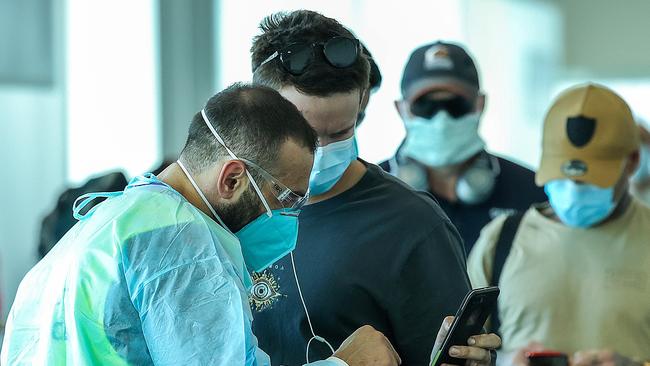
Coronavirus fragments were detected in a sewage sample collected from the Altona wastewater treatment plant on March 26, the department said.
The finding follows the detection of viral fragments in a catchment in Melbourne’s southeast and in the city’s west.
New areas on alert include Altona, Altona Meadows, Hoppers Crossing, Laverton, Point Cook, Seabrook, Seaholme and Williams Landing.
“Anyone with COVID-19 symptoms, no matter how mild, is urged to get tested, especially if you live in or have visited these areas during these dates,” the department said in a statement,
On Wednesday it was revealed positive samples were taken between March 22 to 29 at Hoppers Crossing, Tarneit, Truganina and Werribee, and between March 21 to 25 at Beaconsfield, Berwick, Clyde North, Cranbourne East, Cranbourne North, Guys Hill, Hallam, Hampton Park, Harkaway, Narre Warren, Narre Warren North, Narre Warren South, Officer and Upper Beaconsfield.
READ the full story
Bruno Waterfield8.35am:WHO lashes ‘unacceptably slow’ EU vaccine rollout
The European Union’s vaccination program is unacceptably slow and is causing deaths while Britain’s successful effort has already saved thousands of lives, the World Health Organisation has said.
Dr Hans Kluge, the WHO director for Europe, urged the EU to step up vaccinations urgently to stop the risk of new coronavirus variants spreading.
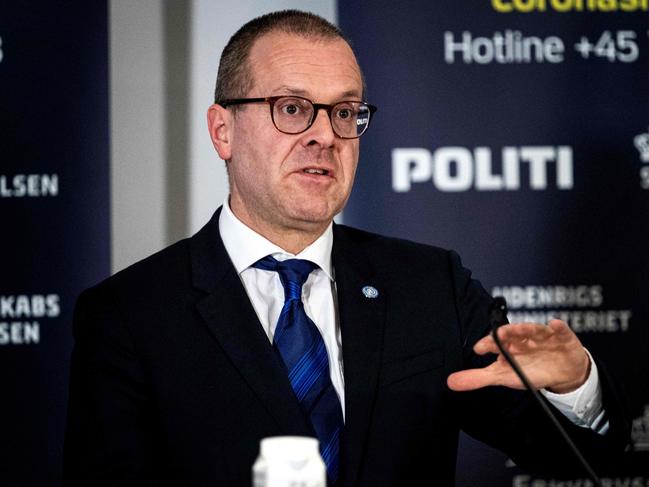
“Vaccines present our best way out of this pandemic. Not only do they work, they are also highly effective in preventing infection. However, the rollout of these vaccines is unacceptably slow,” he said yesterday. “Let me be clear, we must speed up the process by ramping up manufacturing, reducing barriers to administering vaccines and using every single vial we have in stock, now.”
A WHO statement noted: “New data from Public Health England suggest that COVID-19 vaccines have saved, at the very least, over 6,000 lives among people over 70 since vaccination started in December 2020.”
Mr Kluge said that the slow EU provision of vaccines was contributing to a worrying surge in infections and would lead to prolonged lockdowns.
Dr Dorit Nitzan, the WHO’s regional emergency director, said: “The likelihood of new variants of concern occurring increases with the rate at which the virus is replicating and spreading, so curbing transmission through basic disease control actions is crucial.”
The Times
READ MORE: Vaccine lag hits care homes
Rhiannon Down8.15am:Queensland police on deadline to be vaccinated
The Queensland Police Union has thrown its support behind a deadline for frontline workers to be vaccinated against COVID-19.
Queensland Police Union general secretary Mick Barnes said the union supported the move to remove workers, including police, from their posts if they had not received the jab, the Courier-Mail reports.
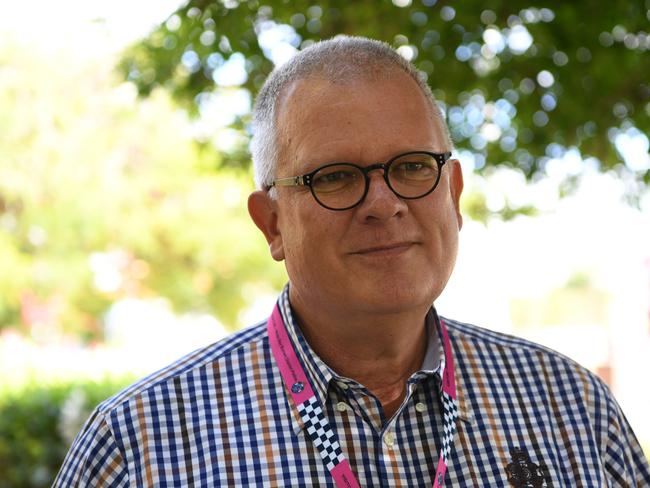
“The Queensland Police Union supports (chief health officer Dr Jeannette Young’s) direction that all workers, such as health and police, who work in quarantine hotels and near COVID patients must be vaccinated,” he said.
“No police officer is being forced to be vaccinated, however they will not be able to work near COVID patients or at quarantine hotels, and the QPU supports that direction as it keeps the community and our members safe.”
Queensland chief health officer Dr Jeannette Young announced on Wednesday that front line healthcare workers were required to have received at least one vaccine dose before treating positive patients.
It comes amid mounting concerns about the risks faced by health workers, after a junior doctor at the Princess Alexandra Hospital and two nurses sparked separate outbreaks, plunging Brisbane into a three day lockdown.
READ MORE:Will Morrison’s new ministry work?
Rhiannon Down8.10am:Victoria records zero new cases
Victoria has recorded zero cases of COVID-19 across the state in the past 24 hours, after health authorities received more than 15,000 tests.
There remains only one active case of coronavirus in Victoria.
Yesterday there were no new cases reported. 15,829 results were received. Thanks for getting tested - #EveryTestHelps.
— VicGovDH (@VicGovDH) April 1, 2021
More later: https://t.co/lIUrl0ZEco#COVID19Vic#COVID19VicDatapic.twitter.com/gybKzAj4ua
Rhiannon Down7.55am:Brisbane free for Easter, restrictions remain
Brisbane has woken to its first full day of freedom after a three day lockdown was lifted on Thursday, just in time for the Easter long weekend.
The lockdown was lifted at midday, hours earlier than originally expected, as the state recorded just one local COVID-case.
However restrictions remain, with gatherings in Queensland limited to a maximum of 30 people in the home, but churches can hold Easter services if adhering to the two per four square metre rule.
âš ï¸ Public Health Alert âš ï¸
— Queensland Health (@qldhealthnews) April 1, 2021
Queensland Health is issuing a contact tracing alert for parts of Brisbane, in relation to new locally acquired #COVID19 cases.
For a full list of locations and times, visit https://t.co/szwjYvf2RVpic.twitter.com/hnTwuNR0Mj
Mandatory mask orders remain in place as do a number of active warnings from health authorities, who added a string of venues to the state’s list of hotspot locations on Thursday with more likely to follow.
Some of the newest health warnings include the following venues with anyone who visited them in the infection period asked to get tested and isolate for 14 days.
KCF Training (gym), Birtinya, Monday March 22 from 9.15am to 11.30am
Plus Fitness, Minyama, Monday March 22 from 2.30pm to 3.30pm and Tuesday March 23 from 7.30am and 8.30am
Hamilton Hotel – Sports bar, Hamilton, Tuesday March 23 from 2.20pm to 4.45pm and the pokies room from 4.45pm to 5.23pm.
On Thursday Queensland’s chief health officer Jeannette Young warned the risk remained high for the community, expressing concern that the level of the virus within infected patients was far higher than at the start of the pandemic.
“We are getting more and more of these incredibly high-risk patients in our hospitals,” Dr Young said.
“It does worry me”.
READ MORE: Why they call it the blues
Rhiannon Down7.35am:Lismore man charged over masks assault
A Lismore man has been charged with assault after he reacted violently to requests to wear a face mask under new COVID-restrictions introduced in NSW’s north.
NSW Police allege the 47-year-old man was offered a mask when he attempted to enter a shopping centre, before lashing out and punching at a security guard.
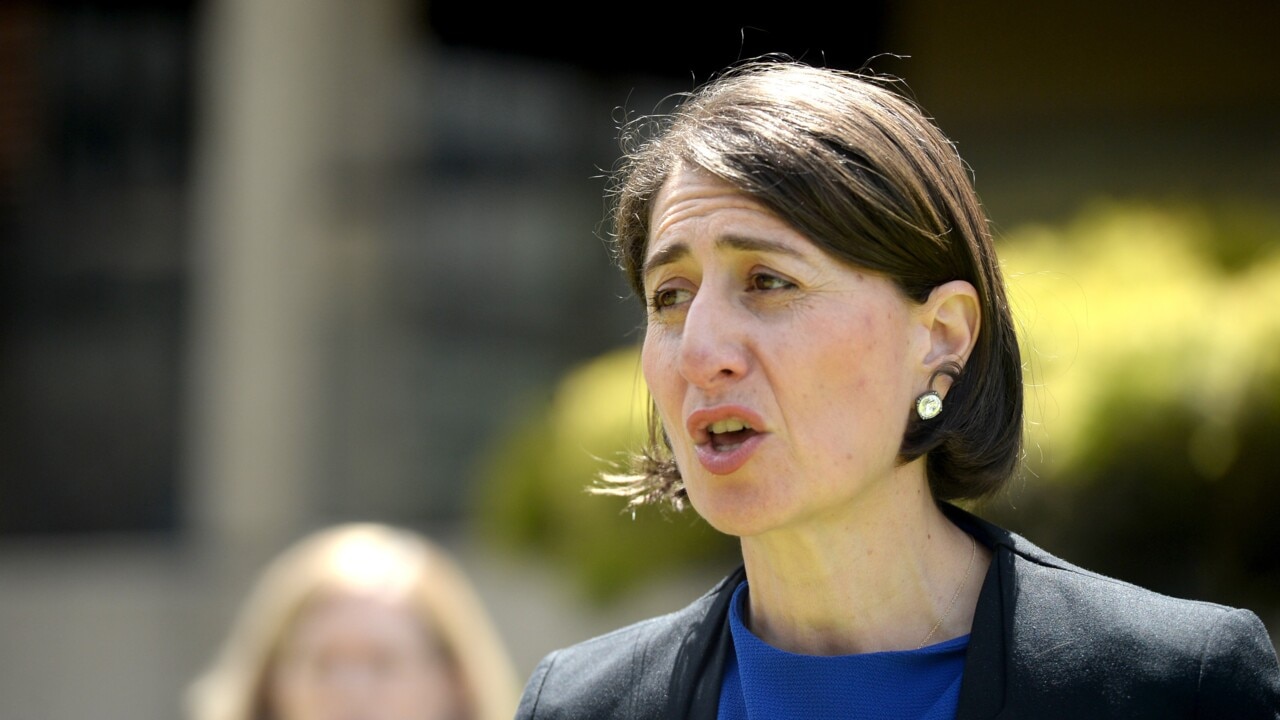
Lismore, Ballina, Tweed and Byron shires returned to tighter COVID-19 restrictions including mandatory mask orders on Wednesday, after a Byron Bay man became the state’s first positive case in two weeks.
“Members of the public intervened, during which the man allegedly resisted and punched several people in the face and chest,” NSW Police said.
“A male bystander sustained bruising to his neck and face.
“Officers from Richmond Police District attended and took custody of the man, who then allegedly kicked a male senior constable in the face, chest and hands.”
The man was charged with a string of assault charges and fined $1000 for failing to comply with health directions.
READ MORE: Backing MPs comes at cost for PM
Tim Dodd6.15am: NSW in plan to return 10,000 students
NSW is pushing ahead of other states with a bid to return up to 10,000 international students this year, and has invited tenders from accommodation providers for 600 quarantine places for arriving students.
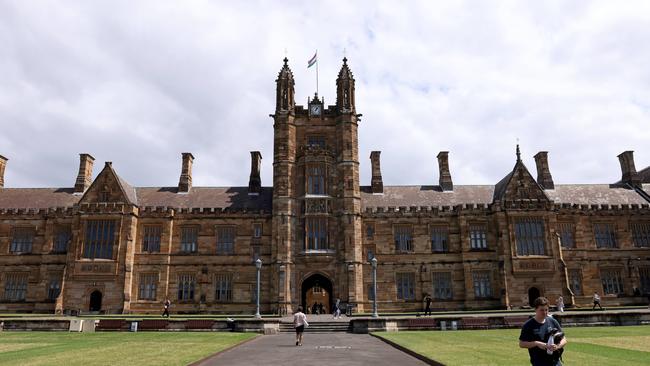
A NSW government tender document, posted on Wednesday, says that the state earned nearly $15bn a year in export income from international students prior to the pandemic and “we estimate in 2021 we have already lost one third of our international student base.”
“The return of international students as soon as possible is vital for retaining jobs in our education sector, and for the economy more broadly,” the document says.
With a 600 student capacity, the planned new quarantine facilities — to be located in or near the Sydney CBD — would be able to handle a maximum intake of about 300 students a week for a two week quarantine period.
Depending on utilisation, it is likely 5000 to 10,000 international students could return to NSW this year under the planned scheme.
The tender appears to have been designed to exactly match the spare capacity of the student accommodation industry in NSW. Expressions of interest must be lodged by April 12 and only student accommodation providers who meet quarantine requirements are invited to apply.
READ the full story
Jess Malcolm6.00am:‘I won’t be lectured’: vaccine row ignites
The vaccine rollout stoush continued to heat up between the states and the federal government on Thursday with federal cabinet minister David Littleproud claiming he “won’t be lectured” by the states.
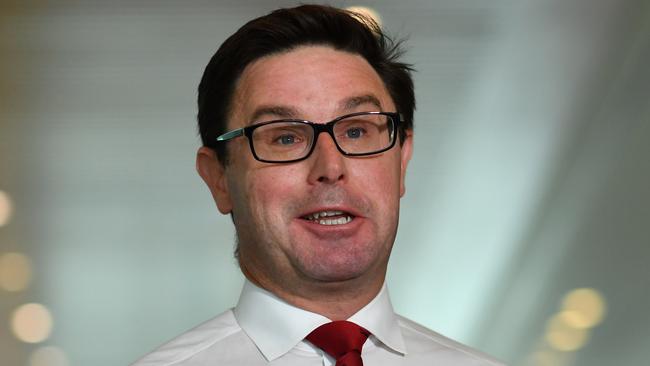
“I won’t be lectured to by a man who was sacked as health minister and a government that was derelict in their duty of protecting their frontline health workers by not having them fully vaccinated before they treated COVID patients,” Mr Littleproud said in a statement.
As Queensland battles its latest outbreak, Deputy Premier Steven Miles threatened the state would run out of Pfizer vaccines this weekend, causing GPs to be up in arms about the insecurity of the vaccine supply which is a responsibility of the federal government.
Mr Littleproud was responding to comments made by Mr Miles who claimed that he “hadn’t heard of” the deputy leader of the national party until this week.
NSW Premier Gladys Berejiklian also took a stab at the Morrison government alongside health minister Brad Hazzard, who called the vaccine rollout the hardest issue he had faced in the war against COVID-19.
Federal health minister Greg Hunt attempted to hose down the brawl, claiming there was no rift between governments and that the rollout was continuing to accelerate.
Thousands of people are still in isolation ahead of the Easter weekend, and despite the Brisbane lockdown lifting at noon on Thursday, many restrictions still remain.
Masks remain compulsory for indoor venues like shopping centres across Queensland, while a maximum of 30 people can gather in the home. Churches can hold Easter services if adhering to the two per four square metre rule.
Victoria and the Northern Territory relaxed their border restrictions to Queenslanders, allowing some people to return home for the long weekend.
For South Australia and Tasmanian authorities, the COVID-19 outbreak remained too severe, and triggered their decisions to keep their borders slammed shut.
Thousands of Australians also snapped up half-price tickets to regional centres on Thursday as part of the first week of the federal government’s $1.2 billion tourism bonanza.
READ MORE:NSW plan to return students
Angie Raphael5.50am: Brazil strain found in WA returned traveller
The fast-spreading Brazilian strain of COVID-19 has been detected in a returned overseas traveller in Western Australia’s hotel quarantine system.
It is only the third case of its type recorded in Australia and was discovered through genomic testing.
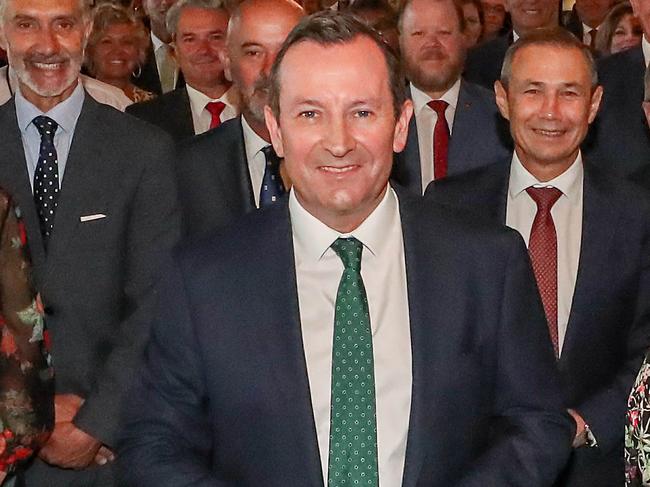
“The Brazilian variant is one of the more virulent strains of the virus but that person was managed appropriately and has now recovered,” Premier Mark McGowan told reporters on Thursday.
A WA Health Department spokeswoman told NCA NewsWire there had previously been two cases of the Brazilian strain in New South Wales.
In total, WA has recorded 28 cases of the highly contagious UK strain and 11 of the South African variant.
READthe full story

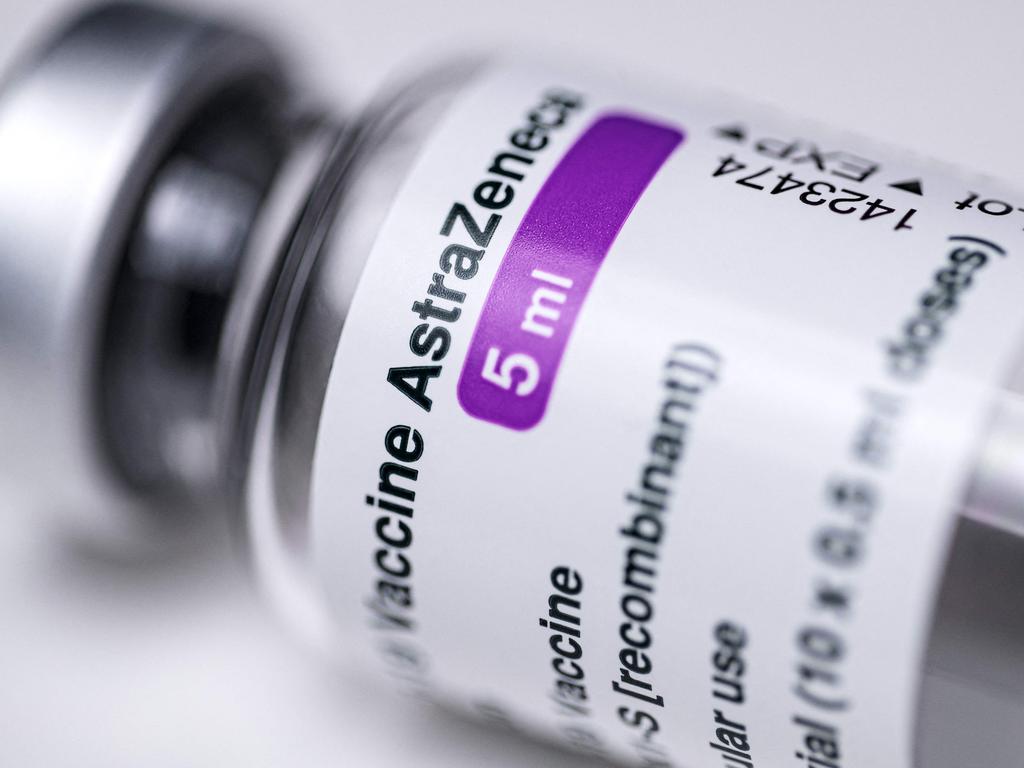


To join the conversation, please log in. Don't have an account? Register
Join the conversation, you are commenting as Logout